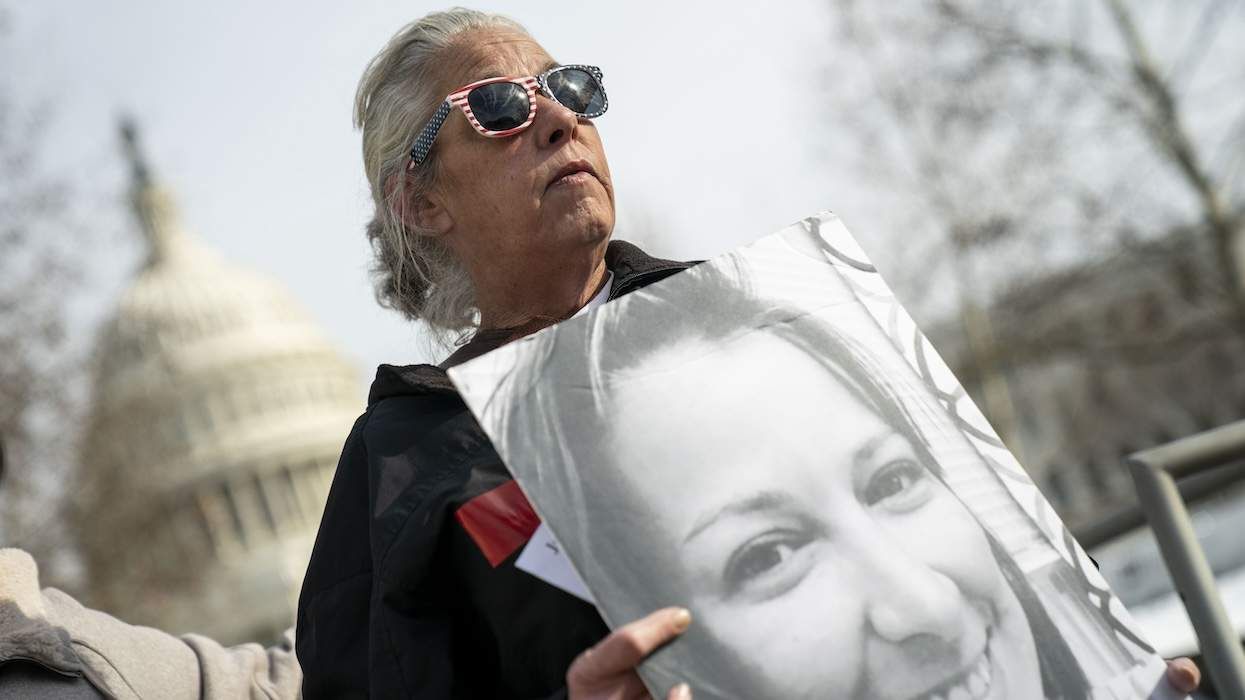The Florida House already passed legislation barring physicians from providing gender-affirming care to minors. Now, state lawmakers want to subpoena the medical associations who dared to testify in support of the care.
Florida Rep. Randy Fine, who sponsored several pieces of anti-LGBTQ legislation in the state this year, tweeted pictures of himself signing demands of the Florida chapters for the American Academy of Pediatrics and for the American Psychiatric Association.
The subpoenas, he posted, were "demanding production of all materials justifying their recommendation that castrating and mutilating children is 'gender affirming care.'"
\u201cI just signed subpoenas to the Florida Psychiatric Society, a branch of the @APApsychiatric, and the Florida Chapter of the @AmerAcadPeds demanding production of all materials justifying their recommendation that castrating and mutilating children is \u201cgender affirming care.\u201d\u201d— Rep. Randy Fine (@Rep. Randy Fine) 1682366220
Officials for both the Florida Psychiatric Society and the Florida Chapter of the American Academy of Pediatrics declined to comment on the subpoenas.
Florida House Speaker Paul Renner wrote in a letter demanding the subpoenas be sent. He questioned whether the organizations indeed reflected a consensus of Florida professionals who were members of the groups.
“Although these leading practitioners (and others) have sounded alarm bells regarding contemporary treatment of minors with gender dysphoria, organizations including FCAAP apparently maintain that there is medical consensus that ‘gender-affirming care’ is the appropriate treatment,” Renner wrote, in an excerpt reported by Florida Politics.
“The foregoing (and other) indicia of widespread self-censorship in the medical profession suggest that the purported consensus may be little more than a mirage.”
In the buildup to the passage of the Florida House bill, organizations have pointed toward guidelines from the World Professional Association for Transgender Health and the Endocrine Society.
The guidelines for the Endocrine Society cite studies in the past 20 years that suggest gender-affirming care can help trans youth.
“Those gender diverse youth who have barriers to accessing adequate healthcare have poorer overall physical and mental health compared to their cisgender peers,” guidelines state.
“Over the last decade, there has been considerable research on and development of evidence-based standards of care that have proven to be both safe and efficacious for the treatment of gender dysphoria/gender incongruence in youth and adults. There is also a growing understanding of the positive impact that increased access to such treatments can have on the mental health of these individuals.”
The guidelines warn against placing barriers to care for youth.
The WPATH guidelines also state medical intervention can be appropriate for youth patients.
“Adolescents who experience their primary and/or secondary sex characteristics and their sex assigned at birth as inconsistent with their gender identity may be intensely distressed about it,” guidelines read. “Many, but not all, gender dysphoric adolescents have a strong wish for hormones and surgery. Increasing numbers of adolescents have already started living in their desired gender role upon entering high school.”















